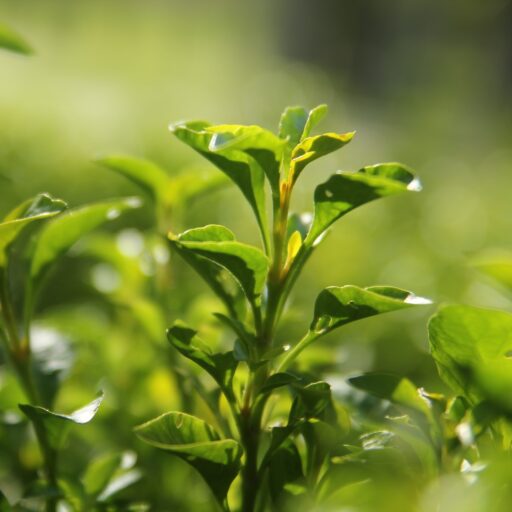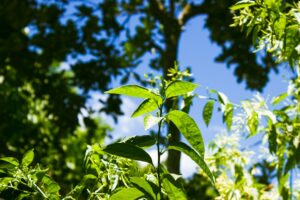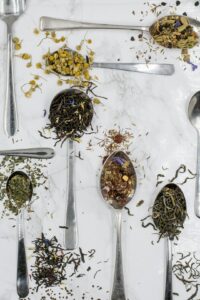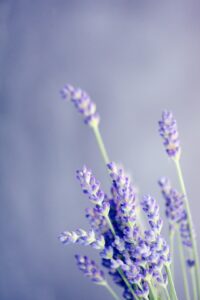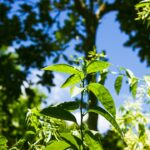Support our educational content for free when you purchase through links on our site. Learn more
Herbal Tea Seeds: Grow Your Own Medicinal Tea Garden [2024]
Have you ever dreamed of sipping a warm cup of tea made from herbs you grew yourself? Imagine the satisfaction of cultivating your own medicinal tea garden, filled with fragrant and flavorful herbs that can be brewed into soothing and healing teas. At Growing Teas™, we believe that growing your own herbal tea garden is not only a rewarding experience but also a way to ensure the quality and freshness of the teas you consume. In this article, we will guide you through the world of herbal tea seeds, providing you with all the information you need to start your own tea garden and enjoy the benefits of homegrown herbal teas.
Table of Contents
- Quick Answer
- Quick Tips and Facts
- Background: The History of Herbal Tea
- Choosing the Right Herbal Tea Seeds
- How to Grow Your Own Herbal Teas
- The Benefits of Growing Your Own Herbal Teas
- Companion Planting: Enhancing Your Tea Garden
- Frequently Asked Questions
- Conclusion
- Recommended Links
- Reference Links
Quick Answer
Growing your own herbal tea garden is a rewarding and fulfilling experience. By starting with high-quality herbal tea seeds, you can cultivate a wide variety of herbs that can be brewed into delicious and healthful teas. Whether you’re a seasoned gardener or a beginner, growing herbal tea seeds is a simple and enjoyable process. With the right care and attention, you can have a bountiful tea garden that provides you with an endless supply of fresh and flavorful herbal teas.
CHECK PRICE on: Amazon | Walmart | Etsy
Quick Tips and Facts
- Herbal tea seeds are the starting point for growing your own herbal tea garden.
- Choose organic, non-GMO seeds for the best results.
- Different herbs have different growing requirements, so research each herb before planting.
- Most herbal tea seeds can be sown directly in the garden or started indoors.
- Harvest herbs in the morning for the best flavor and potency.
- Drying herbs properly will ensure they retain their flavor and medicinal properties.
- Experiment with different herb combinations to create your own unique tea blends.
Background: The History of Herbal Tea
Herbal tea has a rich history that dates back thousands of years. People have been using herbs for their medicinal properties and flavor for centuries. In ancient times, herbal teas were brewed using various plant parts, including leaves, flowers, and roots. These teas were valued for their healing properties and were often used to treat common ailments.
Today, herbal teas are enjoyed for their delicious taste and numerous health benefits. They can be made from a wide variety of herbs, each with its own unique flavor and medicinal properties. By growing your own herbal tea garden, you can have access to a diverse range of herbs and create your own custom tea blends.
Choosing the Right Herbal Tea Seeds
When it comes to choosing herbal tea seeds, there are a few factors to consider. First, make sure to select organic, non-GMO seeds to ensure the highest quality and purity. Look for reputable seed suppliers that specialize in herbal tea seeds.
Next, consider the specific herbs you want to grow. Some popular herbal tea herbs include chamomile, lavender, echinacea, catnip, lemon balm, marigold, sage, peppermint, and yarrow. Each herb has its own unique flavor and medicinal properties, so choose the ones that align with your preferences and health goals.
CHECK PRICE on: Amazon | Walmart | Etsy
How to Grow Your Own Herbal Teas
Growing herbal tea seeds is a straightforward process that can be done in your garden or even in containers if you have limited space. Here are the basic steps to get you started:
-
Prepare the soil: Choose a sunny location with well-draining soil. Remove any weeds or debris and loosen the soil with a garden fork or tiller.
-
Sow the seeds: Follow the instructions on the seed packet for the specific herb you’re planting. Some seeds can be sown directly in the garden, while others may need to be started indoors and transplanted later.
-
Water and care for the plants: Keep the soil evenly moist but not waterlogged. Water the plants at the base to avoid wetting the leaves, which can lead to disease. Remove any weeds that compete with the herbs for nutrients.
-
Harvest the herbs: Once the herbs have reached maturity, you can start harvesting them. Harvest in the morning when the essential oils are at their peak. Cut the stems just above a leaf node to encourage bushier growth.
-
Dry and store the herbs: To preserve the flavor and medicinal properties of the herbs, dry them properly. Hang the harvested herbs upside down in a cool, dry place until they are completely dry. Store them in airtight containers away from light and heat.
The Benefits of Growing Your Own Herbal Teas
Growing your own herbal teas offers a multitude of benefits. Here are just a few:
-
Freshness and quality: When you grow your own herbal tea garden, you have complete control over the quality and freshness of the herbs. You can ensure that no pesticides or chemicals are used, resulting in a healthier and more flavorful tea.
-
Cost savings: Buying herbal teas can be expensive, especially if you consume them regularly. By growing your own herbs, you can save money in the long run and have an endless supply of fresh tea.
-
Customization: With your own herbal tea garden, you can create custom tea blends tailored to your taste and health needs. Experiment with different combinations of herbs to find your perfect blend.
-
Connection with nature: Gardening is a therapeutic and grounding activity that allows you to connect with nature. Spending time in your tea garden can be a calming and rejuvenating experience.
Companion Planting: Enhancing Your Tea Garden
Companion planting is the practice of growing different plants together to benefit each other. In the context of herbal tea gardens, companion planting can enhance the growth and flavor of your herbs. Here are a few companion plants that pair well with herbal tea herbs:
-
Lavender and Rosemary: These aromatic herbs repel pests and attract beneficial insects like bees and butterflies.
-
Chamomile and Yarrow: These herbs have shallow root systems that help improve soil structure and drainage.
-
Marigold and Nasturtium: These flowers attract pollinators and deter pests, making them excellent companions for herbal tea herbs.
By incorporating companion plants into your tea garden, you can create a thriving ecosystem that supports the growth and health of your herbs.
Frequently Asked Questions
Q: Can I grow herbal tea seeds indoors?
A: Yes, many herbal tea seeds can be started indoors and then transplanted outdoors once the weather is suitable. Follow the instructions on the seed packet for the specific herb you’re growing.
Q: How long does it take for herbal tea seeds to germinate?
A: The germination time varies depending on the herb. Some seeds may sprout within a week, while others may take several weeks. Refer to the seed packet for specific germination times.
Q: Can I use fresh herbs from my garden to make tea?
A: Absolutely! Fresh herbs from your garden can be used to make tea. Simply harvest the desired herbs, rinse them, and steep them in hot water for a few minutes. Enjoy the fresh and vibrant flavors of your homegrown herbal teas.
Q: Are herbal teas safe to consume?
A: Herbal teas are generally safe to consume, but it’s important to do your research and consult with a healthcare professional if you have any specific health concerns or are taking medications that may interact with certain herbs.
Conclusion
Growing your own herbal tea garden is a delightful and rewarding experience. By starting with high-quality herbal tea seeds, you can cultivate a diverse range of herbs that can be brewed into delicious and healthful teas. Whether you’re a tea enthusiast or simply want to explore the world of herbal remedies, growing your own herbal teas allows you to have complete control over the quality and freshness of the teas you consume.
So why wait? Start your own herbal tea garden today and embark on a journey of flavor, healing, and connection with nature. Cheers to a cup of tea that you can proudly say you grew yourself!
CHECK PRICE on: Amazon | Walmart | Etsy
Recommended Links
- Green Tea Cultivation
- Herbal Tea Planting
- Tea Plant Varieties
- Soil and Climate for Tea
- Do we get tea from the seeds of the tea plant? 2024
